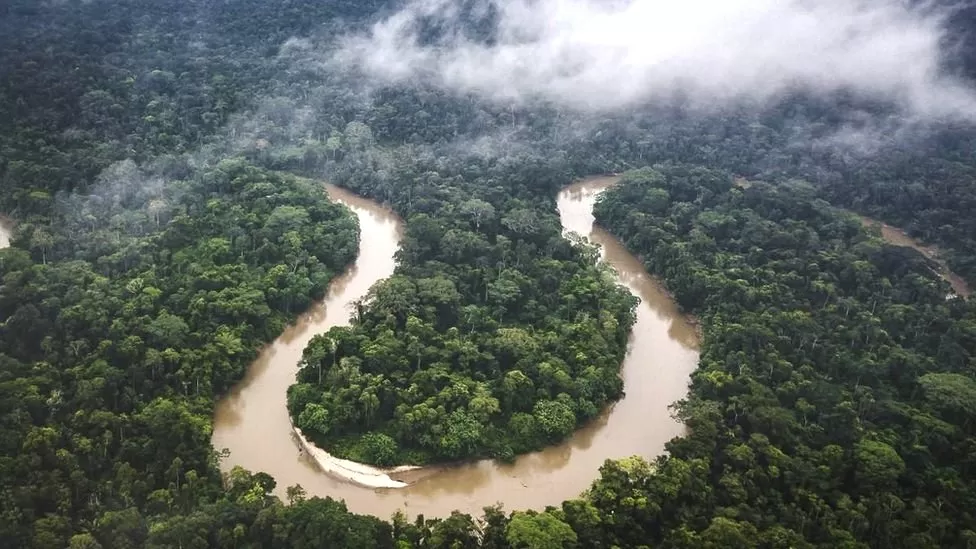Amazon rainforest reaching tipping point, researchers say

According to researchers, the Amazon rainforest is approaching a “tipping point” where trees may die off en masse.
According to a study, the world’s largest rainforest is losing its ability to rebound from droughts, fires, and deforestation.
Savannahs are much less efficient at absorbing carbon dioxide from the air than tropical forests, so large swathes could become sparsely forested.
Carbon that would otherwise contribute to global warming is trapped in the giant forest.
Previous studies have shown that parts of the Amazon are now emitting more carbon dioxide than can be absorbed.
According to Dr Chris Boulton of the University of Exeter, “the trees are losing health and may soon reach a tipping point.”
Satellite data spanning three decades shows alarming trends in the Amazon rainforest’s “health.”
More than 75% of the forest has lost resilience, with trees taking longer to recover from droughts largely caused by climate change and human impact, such as deforestation and fires.
Scientists believe that “dieback” can be caused by a vicious cycle of damage.
Although it’s unclear when that critical point might be reached, the implications would be “devastating” for climate change, biodiversity, and the local community.
According to their prediction, it will only take decades for a “significant chunk” of the Amazon to become a savannah – an ecosystem made up of both grassland and trees.
The Amazon stores lots of carbon and all that would be released into the atmosphere would further contribute to increasing temperatures and have future effects on global mean temperatures,” Dr Boulton said, adding that stopping deforestation would go some way to tackling the issue.
According to the researchers, nearly a fifth of the rainforest has already been lost since pre-industrial times.
Researchers at the University of Exeter, the Potsdam Institute for Climate Impact Research (PIK), and the Technical University of Munich conducted the study.
Prof Niklas Boers of PIK and Technical University of Munich believes deforestation and climate change are the main drivers of this decline.
In a comment, Dr Bonnie Waring, from Imperial College London’s Grantham Institute – Climate Change and Environment, said: “These latest findings are consistent with the accumulating evidence that climate change and human exploitation of tropical forests are endangering the world’s largest rainforest, home to one out of ten species.”
In the journal Nature Climate Change, the findings are based on satellite data from 1991 to 2016.
